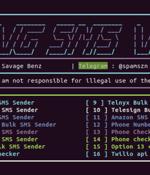Security News

Cybersecurity researchers have disclosed a security flaw impacting Microsoft Azure Kubernetes Services that, if successfully exploited, could allow an attacker to escalate their privileges and...

The U.S. Cybersecurity and Infrastructure Security Agency (CISA) has added a critical security flaw impacting Jenkins to its Known Exploited Vulnerabilities (KEV) catalog, following its...

A file-sharing phishing attack is a unique type of phishing threat in which a cybercriminal poses as a known colleague or familiar file-hosting or e-signature solution and sends a target a malicious email containing a link to what appears to be a shared file or document. File-sharing phishing attacks would be a pressing issue regardless of volume, as one single successful attack can have costly consequences.

CISA has added a critical Jenkins vulnerability that can be exploited to gain remote code execution to its catalog of security bugs, warning that it's actively exploited in attacks. [...]

Malicious actors are using a cloud attack tool named Xeon Sender to conduct SMS phishing and spam campaigns on a large scale by abusing legitimate services. "Attackers can use Xeon to send...

CISA warned on Thursday that attackers are exploiting a recently patched critical vulnerability in SolarWinds' Web Help Desk solution for customer support. [...]
A large percentage of Google's own Pixel devices shipped globally since September 2017 included dormant software that could be used to stage nefarious attacks and deliver various kinds of malware. It's currently not clear why third-party software is directly embedded into Android firmware on background, a Google representative said the application is owned and required by Verizon on all Android devices.

Google has joined Microsoft in publishing intel on Iranian cyber influence activity following a recent uptick in attacks that led to data being leaked from the Trump re-election campaign. APT42 is largely relying on what Google's TAG calls "Cluster C" phishing activity - distinguished methods that have been in use since 2022, characterized by attempts to impersonate NGOs and "Mailer Daemon."

A cybercrime group with links to the RansomHub ransomware has been observed using a new tool designed to terminate endpoint detection and response software on compromised hosts, joining the likes of other similar programs like AuKill and Terminator. The EDR-killing utility has been dubbed EDRKillShifter by cybersecurity company Sophos, which discovered the tool in connection with a failed ransomware attack in May 2024.

Peak attack power rose from 1.6 terabits per second in H2 2023 to 1.7 Tbps. DDoS attacks hit Gaming, tech, finance sectors hard. While the power of the attacks - first measured in Tbps in the second half of last year - increased slightly from 1.6 to 1.7 Tbps, this still poses a growing threat to organizations.